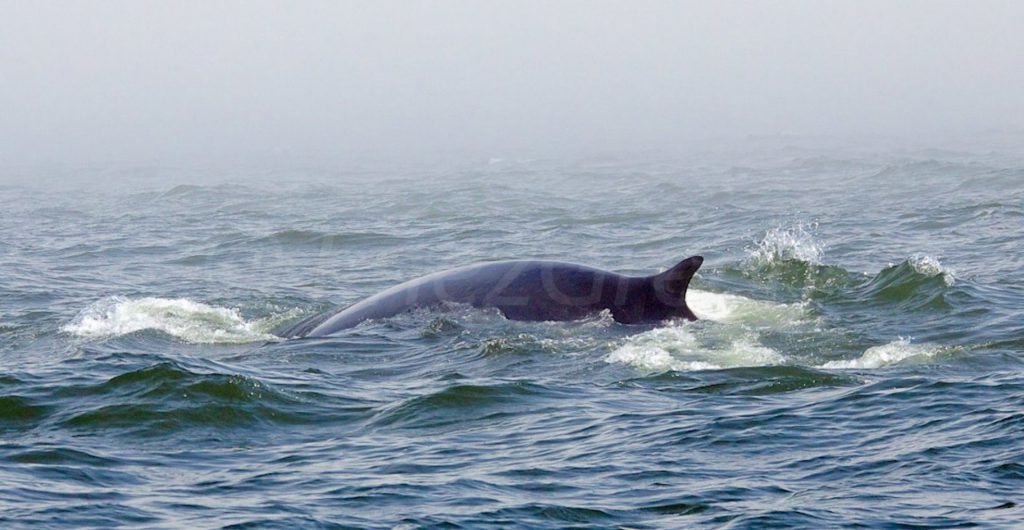“I’m sure it’s much more fun to tag whales with darts than dealing with numbers on a computer in Sandpoint [NOAA offices in Seattle]. Taxpayers do not pay them to have fun, but to focus on the immediate threats to the cetacean population.”
Michael Harris, CEO of PWWA did not hesitate to accuse directly NOAA, National Oceanic and Atmospheric Administration, the federal agency dedicated to the management of ocean resources and weather conditions.
The PWWA calls for a moratorium on cetaceans’ tagging by dart, a common practice used to collect data for scientific purposes.
According to Harris, this practice underlines the desire of federal scientists to collect data out of the mountains and never do anything.
The animal had been hit on the trailing edge of the dorsal fin, and its tag has been attached by metal bars
The call for a moratorium comes just days after the death of a killer whale discovered by Fisheries and Oceans of Canada on March 30 off the coast of Vancouver Island. The cetacean dubbed L95 was a male 20 years, crucial age for the reproduction of this species listed as threatened in Canada and the United States.
L95 was tagged with dart in February by NOAA scientists. The animal had been hit on the trailing edge of the dorsal fin, and its tag was still attached by metal bars.”We do not know yet if the dart is directly responsible for the death of L95, but for sure it did not help,” said Michael Harris.
According PWWA two whales tagged with dart are missing and at least six are wounded by fastening materials. Since 2012, NOAA has tagged 12 killer whales.




